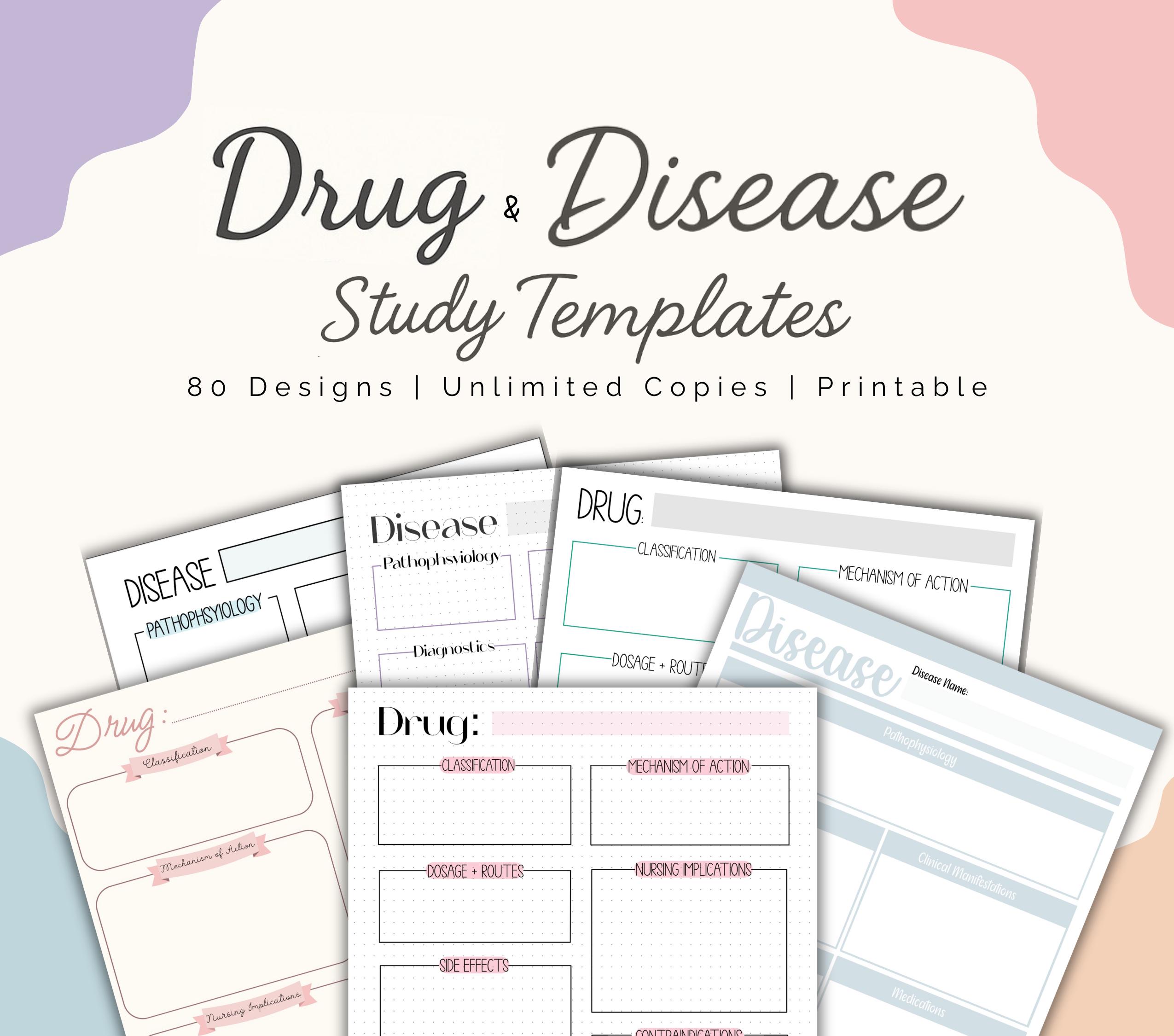Studying diseases and drugs as a student nurse can feel overwhelming - especially with the pressure of exams, and retaining tons of information. I've noticed a few common mistakes that make studying harder than it needs to be. Here's what they are - and how to fix them.
1. Memorising without understanding
The Mistake: Jumping straight into memorising drug names, dosages, or disease symptoms without fully understanding the why behind them.
The Fix: Start with the pathophysiology. When you understand what's going wrong in the body, the symptoms and treatments make more sense and are easier to remember. Create a visual aid where you break it down step-by-step - not just bullet points.
2. Not Making Connections Between Topics
The Mistake: Studying each disease or dug in isolation
The Fix: Link them. For example, understand how diabetes affects wound healing, or how beta blockers impact blood pressure and anxiety. Try using concept maps or integrated notes - like the Disease + Study Templates in my shop - to draw these links visually.
3. Passive Studying (Just Reading or Highlighting)
The Mistake: Highlighting entire textbooks and thinking it counts as studying.
The Fix: Be active. Create visual aids, quiz yourself, and teach concepts out loud. Tools like my printable or digital templates make it easier to stay engaged while you study.
4. Cramming Before Exams
The Mistake: Waiting until the last minute and then trying to absorb 10 chapters in one night.
The Fix: Space your studying. Perhaps you might find it useful to make a habit of reviewing at the end of each week. That way you're constantly reviewing - not cramming.
5. Skipping Visuals
The Mistake: Relying on text-heavy notes.
The Fix: Visual learning boosts memory. Try diagrams, colour-coded templates, or organising information into boxes or columns.
Study smarter - not harder - is the key to reducing burnout and increasing confidence.

